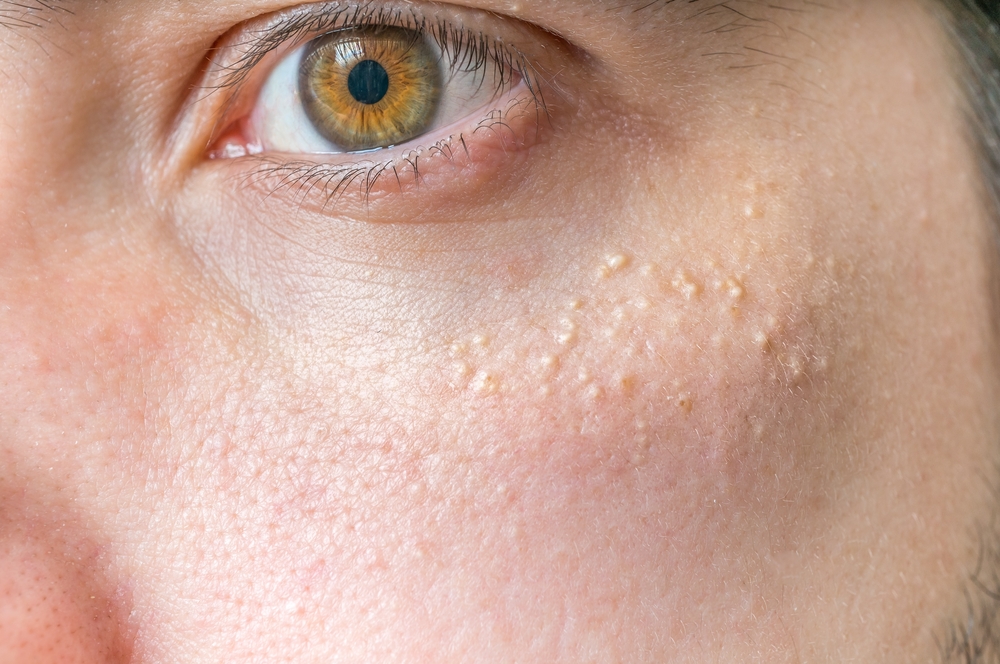Contents:
- Medical Video: Vertigo: causes, symptoms, and treatments
- Vertigo is a collection of symptoms, not the name of the disease
- What are the causes of vertigo?
- What are the symptoms of vertigo?
- The most common treatment for vertigo
Medical Video: Vertigo: causes, symptoms, and treatments
Vertigo is a condition where the sufferer feels the surrounding environment is spinning or floating. Vertigo can occur suddenly or last for a certain period of time. However, if vertigo is already already severe, the symptoms can interfere with your daily activities. This article presents complete information about vertigo, which might be useful for you.
Vertigo is a collection of symptoms, not the name of the disease
Vertigo is a shaky body sensation, kliyengan head, until you feel standing is not steady, so that you have difficulty standing or walking. If you experience vertigo, you may also feel your head spin or that the world around you is spinning, and nausea and vomiting.
What are the causes of vertigo?
Vertigo is generally caused by problems with how the ear works in regulating the body's balance. Vertigo can also be caused by problems in certain parts of the brain, as well as certain head movements that can trigger vertigo.
When you move your head, the inside of the ear will tell you where your head is and then send a signal to the brain to maintain balance. However, if there is a problem in the inner ear, you will feel pain and dizziness. Some problems in the inner ear that may occur are:
- Migraine or headache
- Labyrinthitis, is an infection in the inner ear that can affect your body's hearing and balance.
- Benign Paroxysmal Positional Vertigo (BPPV) is a balance disorder that can cause vertigo when the head position changes.
- Meniere's disease, is an inner ear disorder caused by fluid buildup and changes in pressure in the inner ear. This can be the cause of vertigo along with the appearance of ear ringing (tinnitus) and hearing loss.
- Vestibular neuritis or labyrinthitis, is a disorder of the inner ear due to infection (usually caused by a virus) around the nerves that is important to help balance the body.
What are the symptoms of vertigo?
The most common symptoms of vertigo are nausea, vomiting, headache, ringing in the ears (tinnitus), and spinning or floating head sensation. Usually, symptoms can last several minutes, hours, or days.
The most common treatment for vertigo
Often the symptoms of vertigo will improve over time even without treatment, one of which is to rest. This happens because your brain can adjust to changes in the inner ear - as an effort to maintain body balance.
However, for cases of vertigo that don't heal even for months or years, there are a number of specific treatments that can be taken, such as:
- Perform simple head maneuvers (if the cause is BPPV). The doctor can guide you to this maneuver.
- To reduce nausea, doctors can give vertigo medication to make you feel more comfortable. Doctors will also consider giving antibiotics or steroids to reduce swelling and cure infection. For Meniere's disease, diuretics (water pills) can be prescribed to reduce pressure from fluid buildup.
- Participate in vestibular rehabilitation training (VRT) if complaints are experienced are dizziness and difficulty maintaining body balance. This is a type of physical therapy to strengthen the vestibular system. Functionally, the vestibular system plays a role in maintaining balance, coordination, and control of body movements.
- If vertigo is caused by a more serious underlying problem, such as a tumor or injury to the brain or neck, surgery can be done to help relieve vertigo.
Basically, you need to know in advance the cause of vertigo that you experience so that you can then undergo the right treatment.












